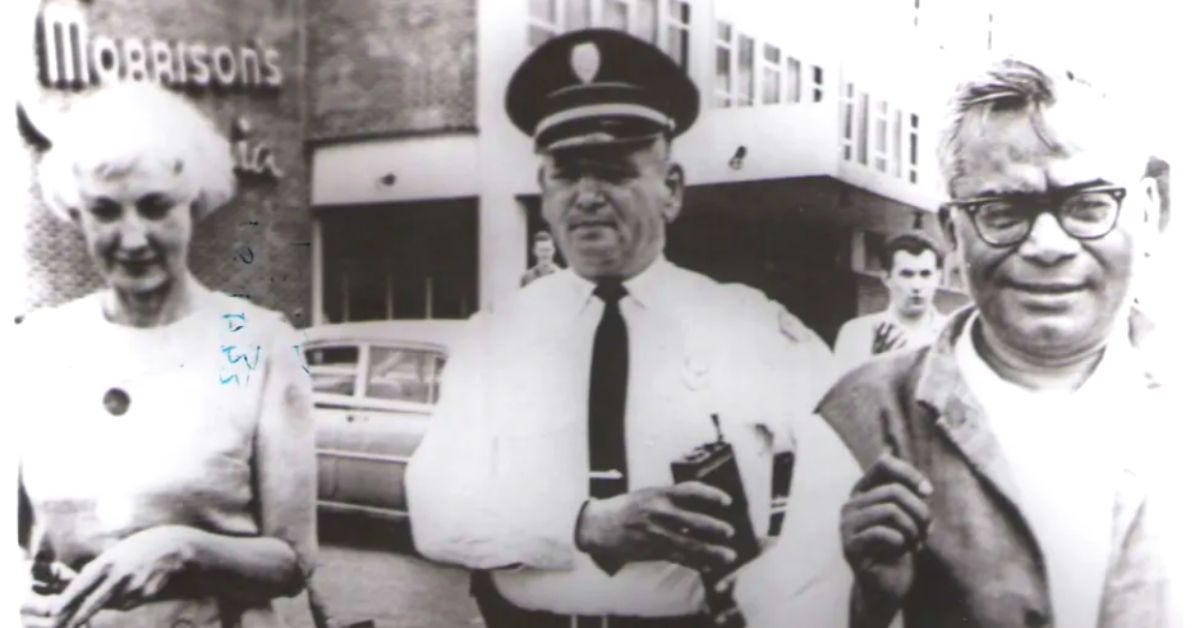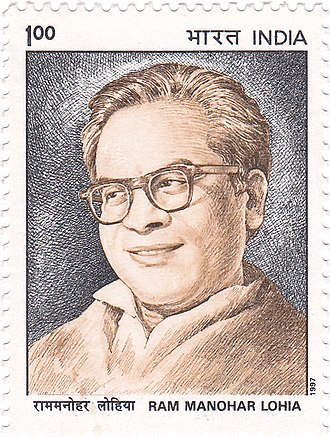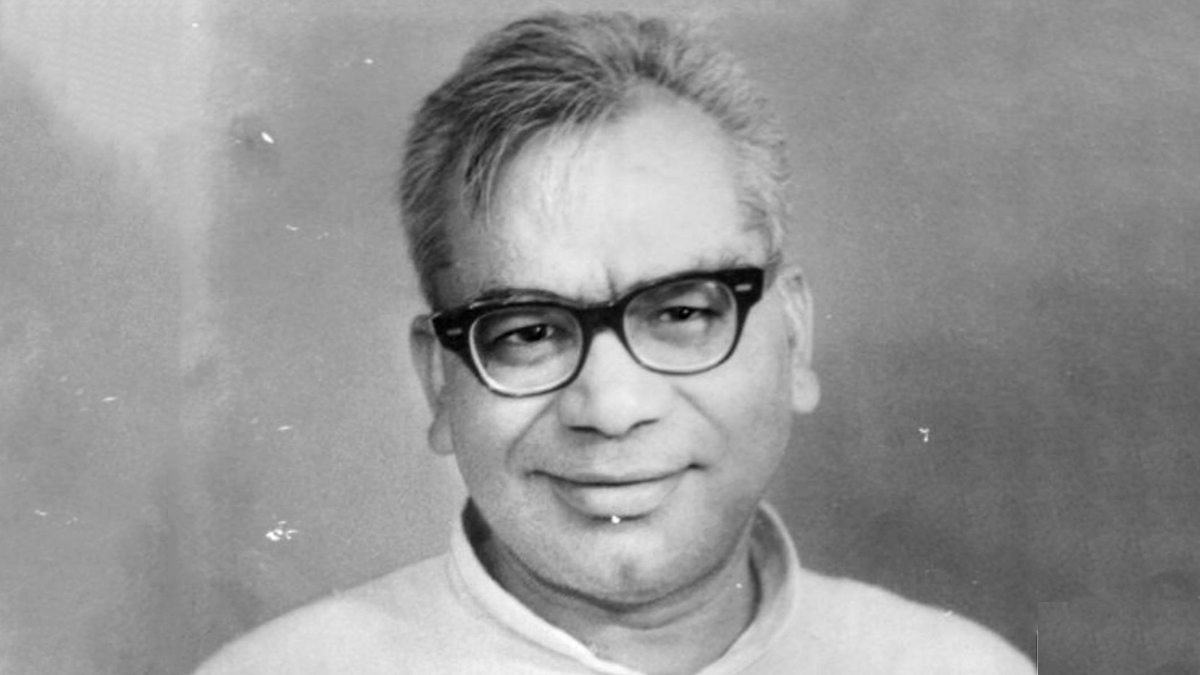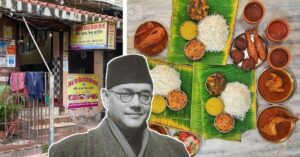When An Indian MP Challenged Racism in America & Forced US Govt to Apologise
In 1964, Gandhian socialist and Member of Parliament Ram Manohar Lohia refused to leave a restaurant in Jackson, Mississippi, which did not serve non-whites, for which he courted arrest. What followed was a remarkable chapter in the struggle for civil liberties.

It wasn’t just the injustices suffered by Indians, at the hands of both British as well as local politicians, that Dr Ram Manohar Lohia — a freedom fighter, Gandhian socialist, activist and politician — was concerned about post Independence. He was a man of the world, and the discrimination faced by communities across the globe plagued him equally so.
(Above image of Lohia on the right in Jackson, Mississippi, in 1964 , courtesy Instagram/brownhistory. This was taken during his visit to the United States of America as an Indian MP.)
His track record in the Indian freedom struggle is well known, whether it was running a clandestine radio operation for the Indian National Congress during the Quit India Movement, or spending years in prisons and suffering torture at the hands of the administration. Inspired by MK Gandhi’s principles of non-violence and civil disobedience, he even had stints in prison after Independence for challenging the Congress establishment.
While his activism in India has been well documented, what’s less known is his association with different causes in support of justice and around the world, especially in the United States.
His association with the fight for civil rights in the United States began all the way back in 1936, when he wrote to legendary African American intellectual WEB Du Bois in the hope of establishing “the closest relations with our Negro comrades of America”. He would visit America for the first time in 1951 to address audiences across the Southern states, including Montgomery, Alabama, where a report claims that Rosa Parks was in attendance.
Throughout these addresses in America, he often spoke of Gandhi’s methods of non-violence and civil disobedience to university students and civil rights activists. But it was his second visit to the United States in 1964 as a Member of Parliament (MP) representing Farrukhabad, Uttar Pradesh, where Lohia walked the talk against systemic racism.
In short, this is what happened according to a 9 June 1964 issue of Student Voice (published in Atlanta, Georgia), the newspaper of the Student Nonviolent Coordination Committee (SNCC):
“A member of India’s parliament was twice refused service at a Morrison’s cafeteria here, and was escorted away by police, the second time in a patrol wagon. On both occasions May 27-28, Dr Ram Manohar Lohia was accompanied by white persons and was dressed in native garb. Lohia was here visiting integrated Tougaloo College.” However, what happened on those two days did have some impact on diplomatic ties between India and the United States.

An act of civil disobedience
On 1 May, he had delivered a lecture at the Stephan Poetry Center, University of Arizona, titled ‘Indian Politics Today’, where he had discussed then prime minister Jawaharlal Nehru’s failures in confronting Chinese aggression, the hollowness of India’s non-alignment policy, and the cruelty of the Indian caste system, among other things.
As a man whose entire life was built on the desire to confront and address systemic injustice, Lohia expressed a deep concern for racial inequality suffered by the African-American community in the United States. This concern led him to accept an invitation to Tougaloo College in the Jackson, Mississipi, a hub for civil rights activism in a region blighted by racist Jim Crow laws that legalised racial segregation.
He wanted to learn more about the activism of the Student Nonviolent Coordinating Committee (SNCC), a group established by college students to end the practice of segregation in public places and ensure greater participation of the African American community in electoral democracy, by helping them register as voters.
On 27 May, Lohia was received at the airport in Jackson by the president of Tougaloo College, following which they went to Morrison’s Cafeteria, located in the heart of the city, for supper.
Given that the restaurant was for ‘Whites Only’, the manager turned away the group because of Lohia. Before leaving the restaurant, however, Lohia warned that he would return the following day. After all, according to Edwin King, SNCC activist and College Chaplain at Tougaloo, there was no way Lohia was going to stay quiet about it.
As a Gandhian, Lohia’s response to this injustice was going to be civil disobedience. More importantly, the act of civil disobedience wasn’t merely about addressing the injustice he faced. Not responding, he believed, would have also been a slight against the African American community in the region subjected to racist Jim Crow laws.
Of course, his hosts were more concerned about his physical safety, and advised him not to visit the restaurant that turned him away. His act of civil disobedience, they felt, could provoke mob violence. But Lohia was not afraid of suffering “personal violence”, and wanted to keep matters “as simple as possible”. If he violated the ‘law’, his wish was that local law enforcement should arrest him. In the words of King, he had “risked death as well as arrest”. What’s interesting here is that Lohia let the restaurant, police, and local press know what he was going to do.
He declared “It was not my intention to expose the injustice in America. Such things are happening everywhere, including in India. Usually I do not go to places where I am not welcome. But having noticed what was happening here before my eyes, if I keep quiet, I would be encouraging the perpetration of this injustice and oppression. If I defy the law to enter an open public place, it is quite possible that some officer would come and arrest me. I cannot blame them. I made this effort as a human being, presuming myself as a citizen of the US. That is why I did not report this matter to the embassy. My intention is to provoke the Americans to take it as a challenge and confront the racial discrimination peacefully.”
King and his wife drove Lohia down to the restaurant and watched the events unfold along with some students. In such circumstances, the police would usually inflict severe violence on protestors and news of such acts of defiance would get suppressed. Since Lohia was a foreign politician, the local and the national press played up the story and the police acted with greater circumspection.

One news account describing the incident noted: “Dr Lohia appeared at the restaurant — as he had announced he would earlier — in a strange three-quarter length robe and wearing sandals. As he started to enter, the manager of the cafeteria, Vernon Hill, said, ‘We don’t want your business. This is private property. I’m asking you to leave’.”
Dr Lohia reportedly replied to this by saying, “I am not leaving. I tell you witn the greatest humility I am not leaving.” The police officer on the scene responded to Dr Lohia by saying, “Did you hear the manager? He is asking you to leave. Now please leave.”
After courting arrest, he was taken into a police wagon which drove around for an hour before letting him go afterwards. Observers on the day believe that the local police must have received instructions not to keep him in prison given his status as a foreign national and lawmaker.
Embarrassed by the incident, the US State Department issued an apology to the Indian Embassy. Lohia responded to this apology with irritation saying, “They may go to hell”. After all, he believed that events at the restaurant did not represent a political issue between two governments, but a moral one that America had to confront. Even the US Ambassador to the United Nations Adlai Stevenson expressed his wish to visit Lohia and apologise for the events. He responded by saying that Stevenson should apologise to the Statue of Liberty instead.
This was yet another example of how Lohia was concerned with injustice all over the world. He also supported the fight for democracy against the Rana dynasty in Nepal, and launched a civil disobedience movement against Portuguese rule in Goa.
As he once wrote, “A way must be found to combat injustice without weapons. That way has already been found. In the act of civil disobedience lies the irresistible impulse of man without weapons to justice and equality. Civil disobedience is armed reason.”
Sources:
‘Mississippi Ousts Indian Politician From a Cafeteria’ news report courtesy The New York Times
‘Dr. Ram Manohar Lohia in the US – Mississippi Experience’ by Jawaharlal Jasthi
‘Remembering Ram Manohar Lohia: The Che Of Non-Violence’ by Niranjan Ramakrishan courtesy Counter Currents
‘An episode in civil disobedience’ by Chandan Gowda courtesy Bangalore Mirror
(Edited by Divya Sethu)
Like this story? Or have something to share? Write to us: [email protected], or connect with us on Facebook and Twitter.

Similar Story

Netaji Bose’s Favourite Eatery Has Been Serving Traditional Delicacies for Over 100 Years
The Swadhin Bharat Hindu Hotel in Kolkata, started by Mangobindo Panda, is a century-old pice hotel where Indian freedom fighters like Netaji Subhas Chandra Bose would enjoy Bengali delicacies.
Read more >
If you found our stories insightful, informative, or even just enjoyable, we invite you to consider making a voluntary payment to support the work we do at The Better India. Your contribution helps us continue producing quality content that educates, inspires, and drives positive change.
Choose one of the payment options below for your contribution-
By paying for the stories you value, you directly contribute to sustaining our efforts focused on making a difference in the world. Together, let's ensure that impactful stories continue to be told and shared, enriching lives and communities alike.
Thank you for your support. Here are some frequently asked questions you might find helpful to know why you are contributing?


This story made me
-
97
-
121
-
89
-
167












